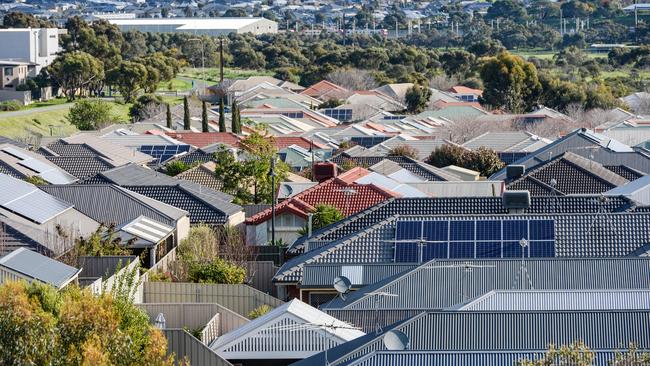How the federal budget 2023 will ease housing affordability for homebuyers
Struggling tenants and desperate homebuyers will be given more help to keep a roof over their heads under a new plan to ease housing market pressures.
Struggling renters will get up to $31 extra a fortnight to help manage the costs of skyrocketing rents in what will be the biggest increase in Commonwealth Rent Assistance in 30 years.
The 15 per cent rent assistance increase will cost $2.7 billion over five years and will support around 1.1 million Australians, including the “most vulnerable”, Budget papers said.
Treasurer Jim Chalmers said an additional “part of the solution to pressures in the housing market” was “more homes for more Australians”.
According to the Proptrack rental report for the March quarter, the rental crisis has deepened in our capital cities, with total stock at historic lows and demand surging.
Included in the Budget were plans to address critical housing supply shortages that have helped drive record increases in rents and home prices across the country.
An additional $2 billion will be allocated for investment in more social and affordable rental housing, effective July 1.
This support will see the liability cap of the National Housing Finance and Investment Corporation increase from $5.5 billion to $7.5 billion, allowing it to support more lending to community housing providers.
Tax breaks were also announced for build-to-rent projects as part of the federal government’s ongoing National Housing Accord aimed at building one million, new, well-located homes over five years, starting from 2024.
Housing supply has been a critical issue across much of Australia, with Master Builders data showing approvals for new dwellings hit a decade low over the first three months of the year.
Meriton’s Harry Triguboff recently pointed out that he is building fewer apartments now than he was 30 years ago due to red tape issues like slow council planning approval processes.
Housing shortages have put extreme pressure on rents, with PropTrack data showing capital city rents increased by an average of 13 per cent – roughly double the rate of inflation – over the past year.

Homebuyers were offered Budget support with eligibility expanded for the existing Home Guarantee Scheme.
The scheme, introduced in 2020, is aimed at helping first homebuyers purchase properties with deposits as low as 5 per cent, with the government guaranteeing the other 15 per cent.
From July 1, the guarantee will be available to any two eligible borrowers, such as friends and siblings, expanding it beyond spouses or de facto partners.
The guarantee will also be available to permanent residents, along with non-first homebuyers if they haven’t owned a property in Australia in the last 10 years.
The government is also expanding the Family Home Guarantee to single legal guardians of dependants, in addition to natural and adoptive parents.
The government is providing an extra $67.5 million to states and territories through the National Housing and HomelessnessAgreement to assist homelessness services.
These new budget measures support the Albanese Government’s housing agenda, which includes the $10 billion Housing AustraliaFuture Fund, which will support the delivery of 30,000 social and affordable homes in its first five years.
Housing Minister Julie Collins revealed in a Budget media release that a shared equity scheme to help buyers get into the market sooner, known as Help to Buy, remained part of the government’s housing agenda, but no new details about the plan were included.
Homeowners will get additional support to make their properties more energy efficient.
The Government is establishing the $1.3 billion Household Energy Upgrades Fund to provide concessional finance to more than 170,000 households for home upgrades that save energy.
More Coverage
Originally published as How the federal budget 2023 will ease housing affordability for homebuyers





